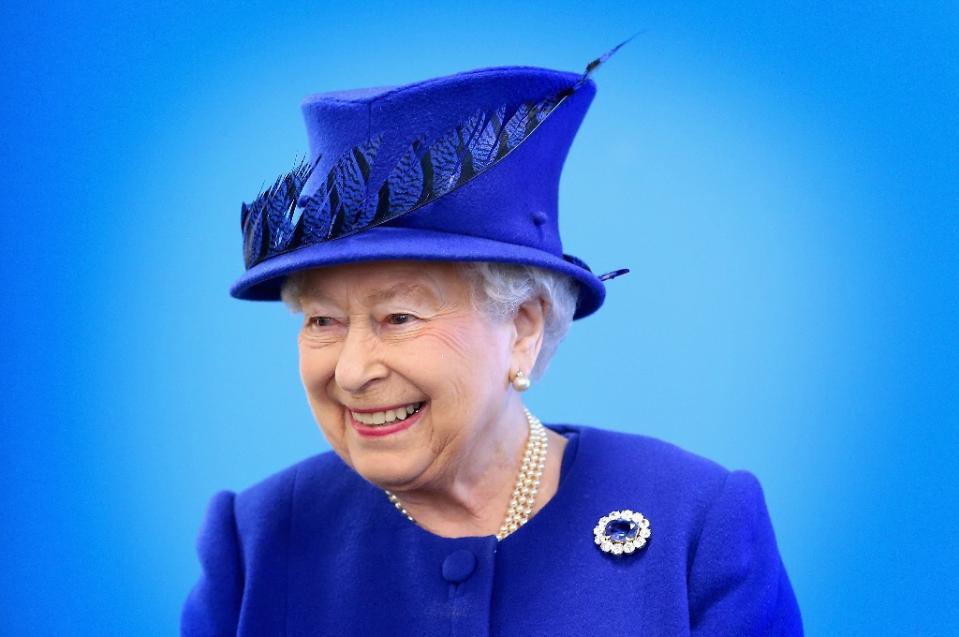
Buckingham Palace hit out Wednesday at a report claiming that Queen Elizabeth II favours Britain leaving the European Union, calling in the national press regulator in a rare move.
"Queen backs Brexit", splashed The Sun, Britain's most-read newspaper, on its front page, with a photograph of the monarch and the sub-heading "EU going in wrong direction, she says".
"Queen spoke with venom and emotion," said the page two headline in the notoriously eurosceptic tabloid.
But Buckingham Palace insisted Queen Elizabeth, sovereign since 1952, did not take sides in politics, in line with her constitutional duty.
The stand-off marks a deterioration in relations between the palace and the British media, with The Sun striking a notably less reverential tone this year, in which Queen Elizabeth marks her 90th birthday on April 21.
The same newspaper in July last year published images showing the queen giving a Nazi salute as a young child in the 1930s in a personal family film reel.
Britain is due to vote on June 23 on whether to remain a member of the 28-member EU.
"The Queen remains politically neutral as she has for 63 years," a palace spokesman said.
"We will not comment on spurious, anonymously sourced claims. The referendum is a matter for the British people to decide."
He added: "We have this morning written to the chairman of the Independent Press Standards Organisation (IPSO) to register a complaint about the front page story in today's Sun newspaper."
The Sun tabloid said it would defend the complaint "vigorously".
- Queen 'let rip' at deputy PM -
The newspaper cited an anonymous "senior source" who said that Queen Elizabeth had "let rip" at pro-EU politician Nick Clegg during a lunch in 2011 when he was deputy prime minister.
"People who heard their conversation were left in no doubt at all about the queen's views on European integration," the source was quoted as saying.
"It was really something, and it went on for quite a while.
"The EU is clearly something her majesty feels passionately about."
But Clegg, who led the pro-EU Liberal Democrats and was deputy prime minister from 2010 to 2015, denied the report.
"This is nonsense," he wrote on Twitter. "I've no recollection of this happening and its not the sort of thing I would forget."
Buckingham Palace said the IPSO complaint related to the first clause of the Editors' Code of Practice, regarding accuracy.
"The press must take care not to publish inaccurate, misleading or distorted information or images, including headlines not supported by the text," the clause reads.
The code requires that a "significant inaccuracy, misleading statement or distortion must be corrected, promptly and with due prominence, and -- where appropriate -- an apology published".
- Change in tone -
The royals rarely complain to the press regulators over newspaper reports.
In 2012, royal officials did so after pictures emerged of Queen Elizabeth's grandson Prince Harry partying naked in a Las Vegas hotel room. They were published in Britain by The Sun.
A formal complaint was made in 1999 after The Sun published a topless picture of Sophie Rhys-Jones, shortly before her wedding to the queen's youngest son Prince Edward.
After years of relative calm following the 1997 death of Diana, princess of Wales, relations between the royals and the press have turned colder over the last 12 months.
Wary of the public outrage that remains over Diana's death, the British press have largely been cooperative.
But signs are growing that the media are becoming increasingly frustrated with the palace's control over access to the royals and determination to keep photographers away from younger members of the family.
The Sun has notably attacked Diana's son Prince William in recent weeks, branding him "workshy", with other papers following suit.
Several newspapers criticised his failure to hold a photocall on his skiing holiday last week, instead inviting a single news agency photographer whose shots were then distributed by the palace. afp


































